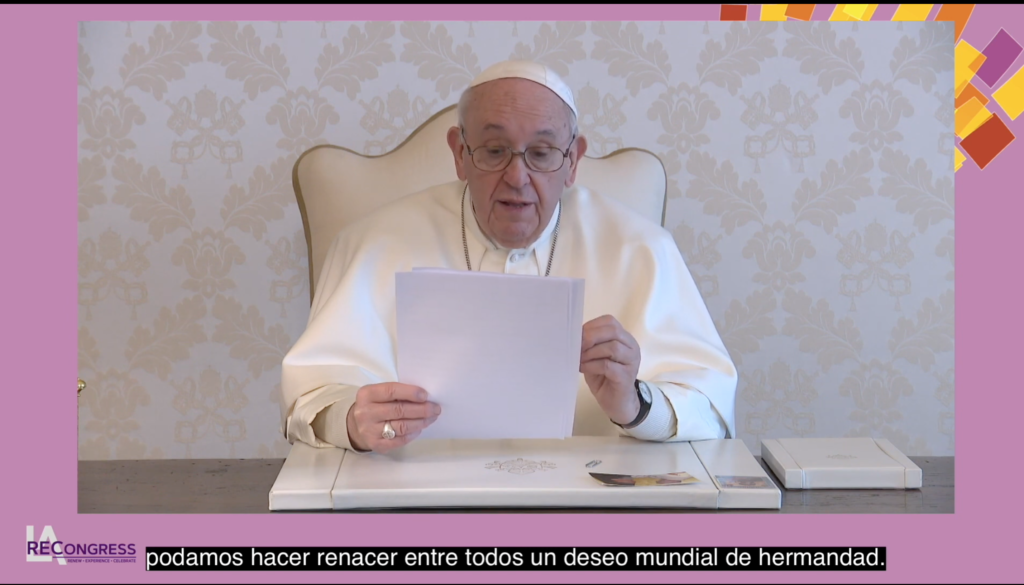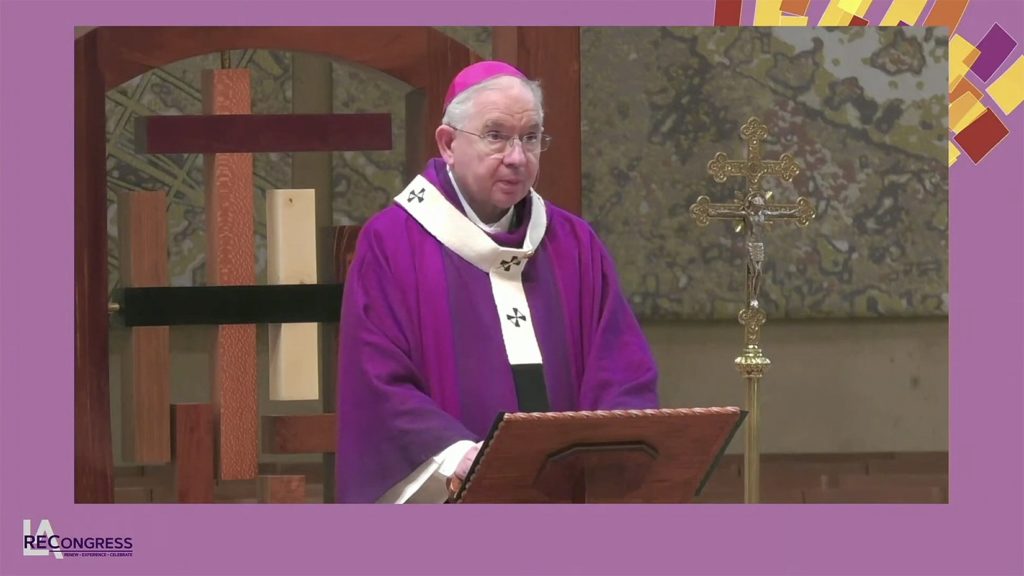The Religious Education Congress (REC) organized by the Archdiocese of Los Angeles, California (CA) was held February 18-21.
This event gathers annually more than 40 thousand people in the city of Anaheim, CA and is already the largest Catholic congress in the United States (USA). This year, due to the pandemic, the event was held virtually. This way, people from different parts of the world were able to connect to the event's platform.
The congress began on February 18, and Pope Francis participated in the opening ceremony through a video message. In his speech, the Pontiff referred to the effects of the pandemic on communities and the lessons it has taught. He urged people to look to the future and act with commitment to the suffering of others.
Crisis can be better or worse
The testimonies of generous and gratuitous love in this era, he said, "have left an indelible mark on consciences and on the fabric of society, teaching how necessary closeness, care, accompaniment and sacrifice are to nourish fraternity. They have been the announcement and realization of God's promise. Let us remember a universal principle: you never come out of a crisis the same way, you come out better or worse, but you never come out the same".

In this sense, the Pope invited young people to have hope, because you, he said, are "the poets of a new human beauty, fraternal and friendly". Francis concluded his address by inviting the young people to dream together as children of the same land with their own convictions and voice, but all as brothers and sisters: "May this be the great impulse that you live, share and take away from your participation in this Congress of Religious Education", concluded the Holy Father.
Life sustained by God's promise
Hope and vision for the future was the content of the congress, which this year had as its theme: "Proclaim the promise. An invitation to believe that our lives and our world are sustained by God's promise. Throughout the three-day event, masses were transmitted in various languages, as well as prayer groups, workshops, exhibition space, youth programming, concerts and keynote lectures, all in virtual form.
Robert Barron, Auxiliary Bishop of Los Angeles; Dr. Hosffman Ospino, Professor at Boston College and Sister Norma Pimentel, Director of Catholic Charities in Brownsville, Texas (border city with Mexico) who has been noted for her work helping migrants. The Congress ended on Sunday, February 21 with the closing mass presided by the Archbishop of Los Angeles José Horacio Gómez, which was broadcast from the LA Cathedral.
"I want to talk to a nun."
Norma Pimentel is known as the "Pope's favorite nun". In September 2015, ABC television hosted a live virtual chat between the Holy Father from Rome and dozens of migrants from one of the border towns in Texas. Near the end of the interview, the Pope said to the host. "Don't cut the video because I want to talk to a nun." Faced with this request, the pontiff told them "There was [among the people] a sister. I want to see her. Come closer... Sister, I want to thank all the nuns in your person for the work you have done in the United States. I congratulate you. Be brave... I tell you one more thing. It sounds ugly for a Pope to say it, but... I love you very much". The sister was Norma Pimentel, whose work on behalf of migrants is nationally recognized. In 2020 the American magazine "Time" recognized her as one of the 100 most influential people in the USA.
The Religious Education Congress
The Congress of Religious Education had its origins in 1956 and emerged as an initiative of the Confraternity of Christian Doctrine and its central orientation was education in the faith for teachers and catechists from all over the United States and Latin America.

Over the years, conferences and activities such as a large exhibition hall, where publishers and different companies offer and launch new products for religious education and evangelization in general, were incorporated. Due to the number of participants, since 1970 the event has been held at the convention center in Anaheim, California, which is one of the few places with the necessary logistics to accommodate more than 40,000 people.









